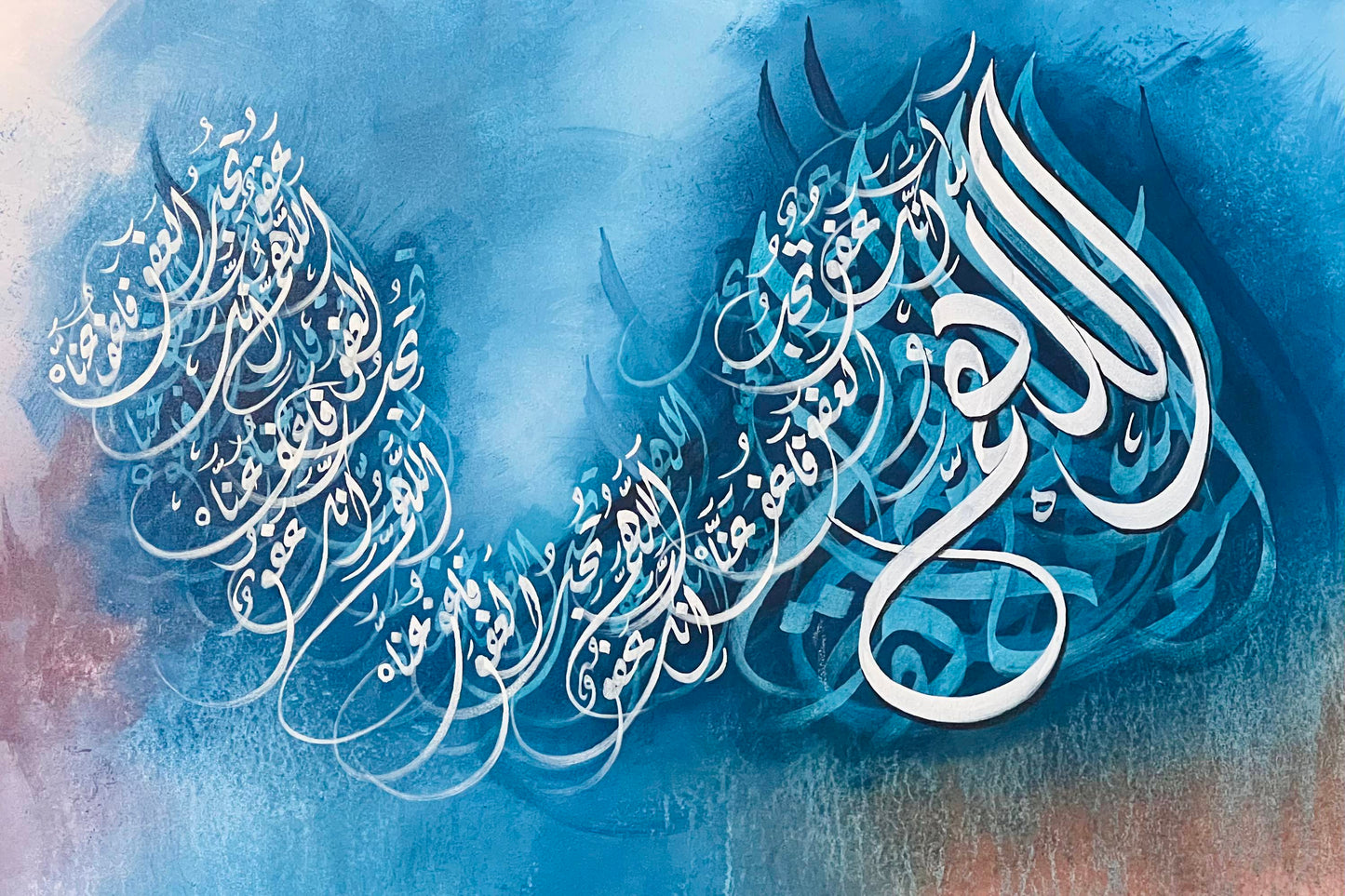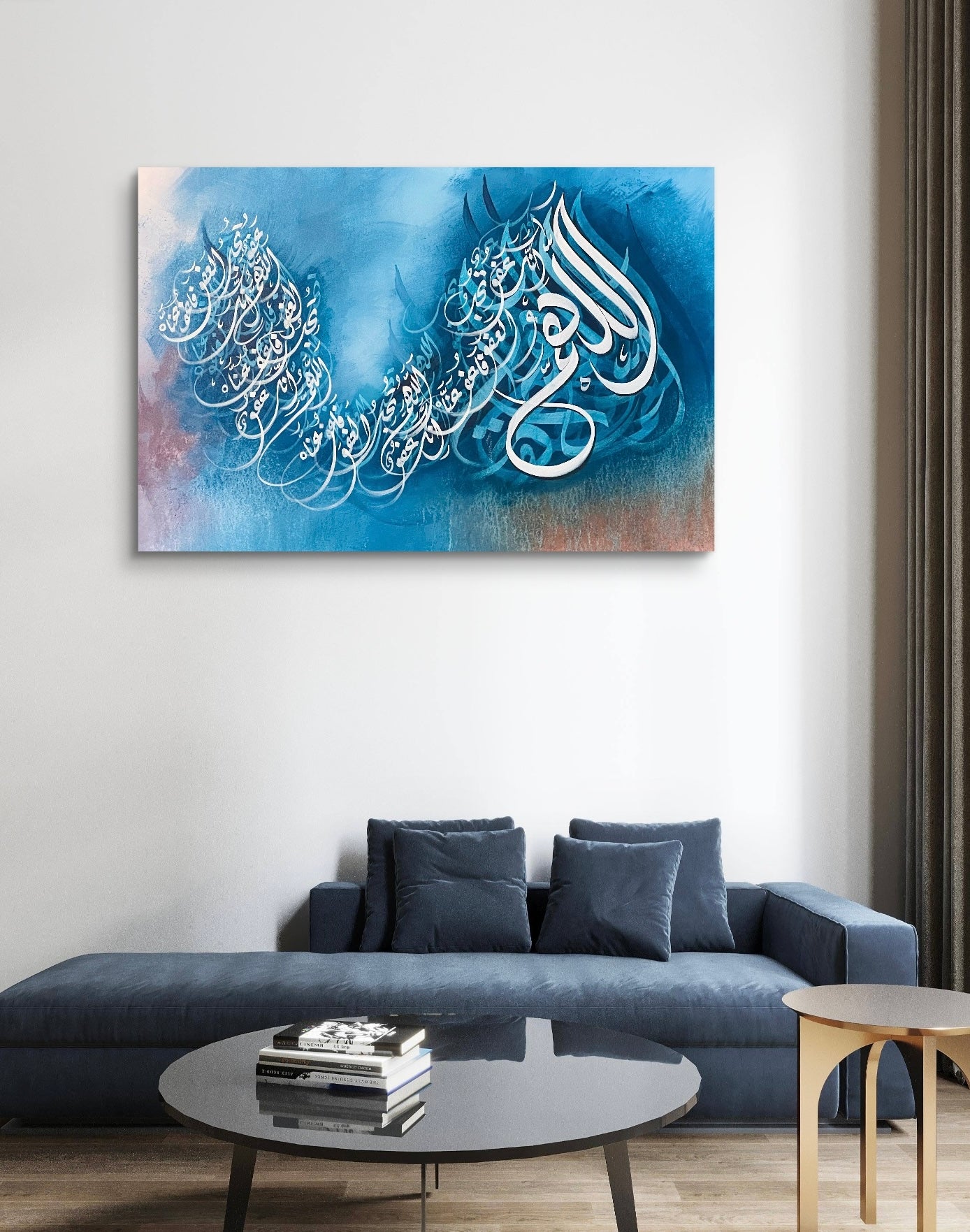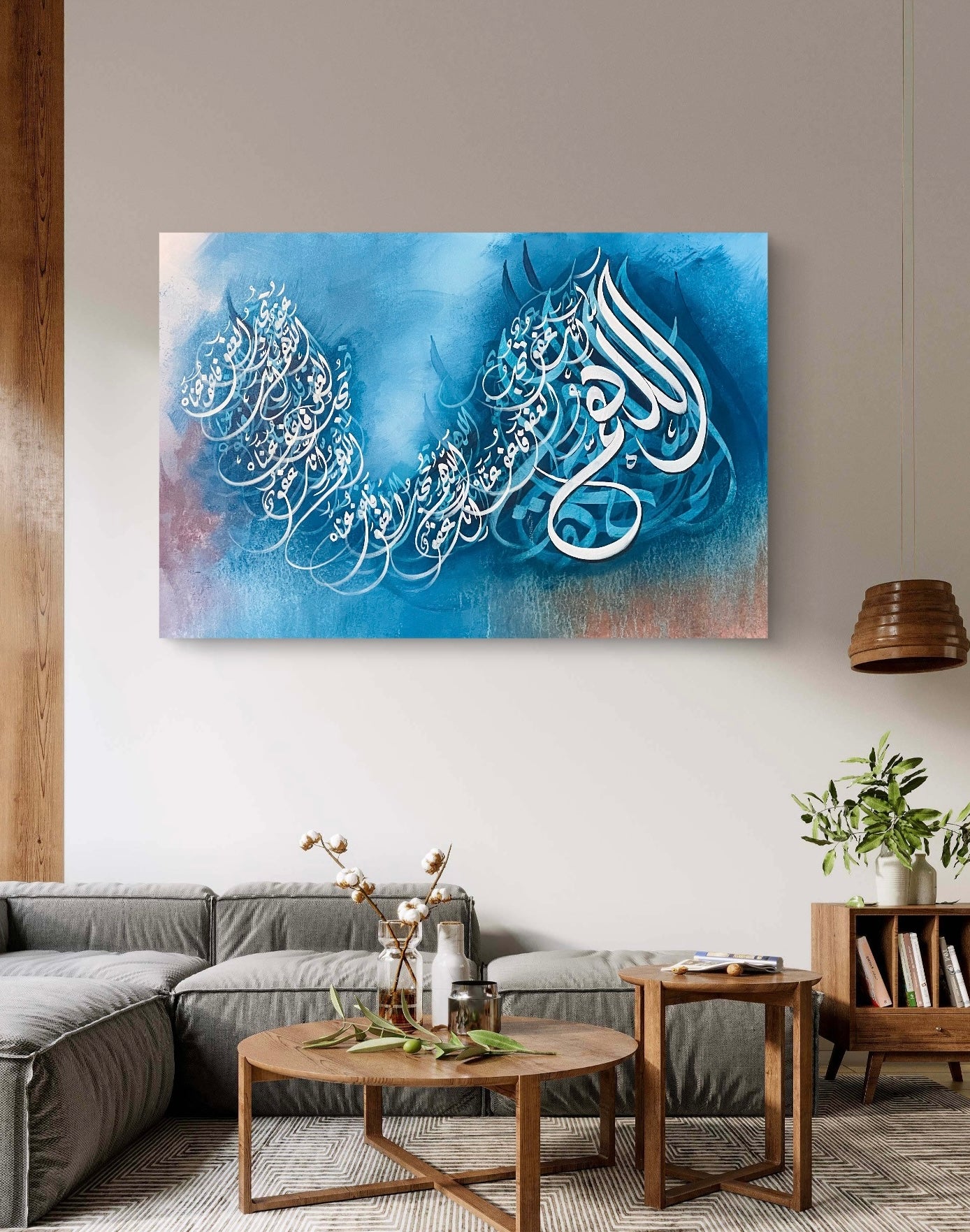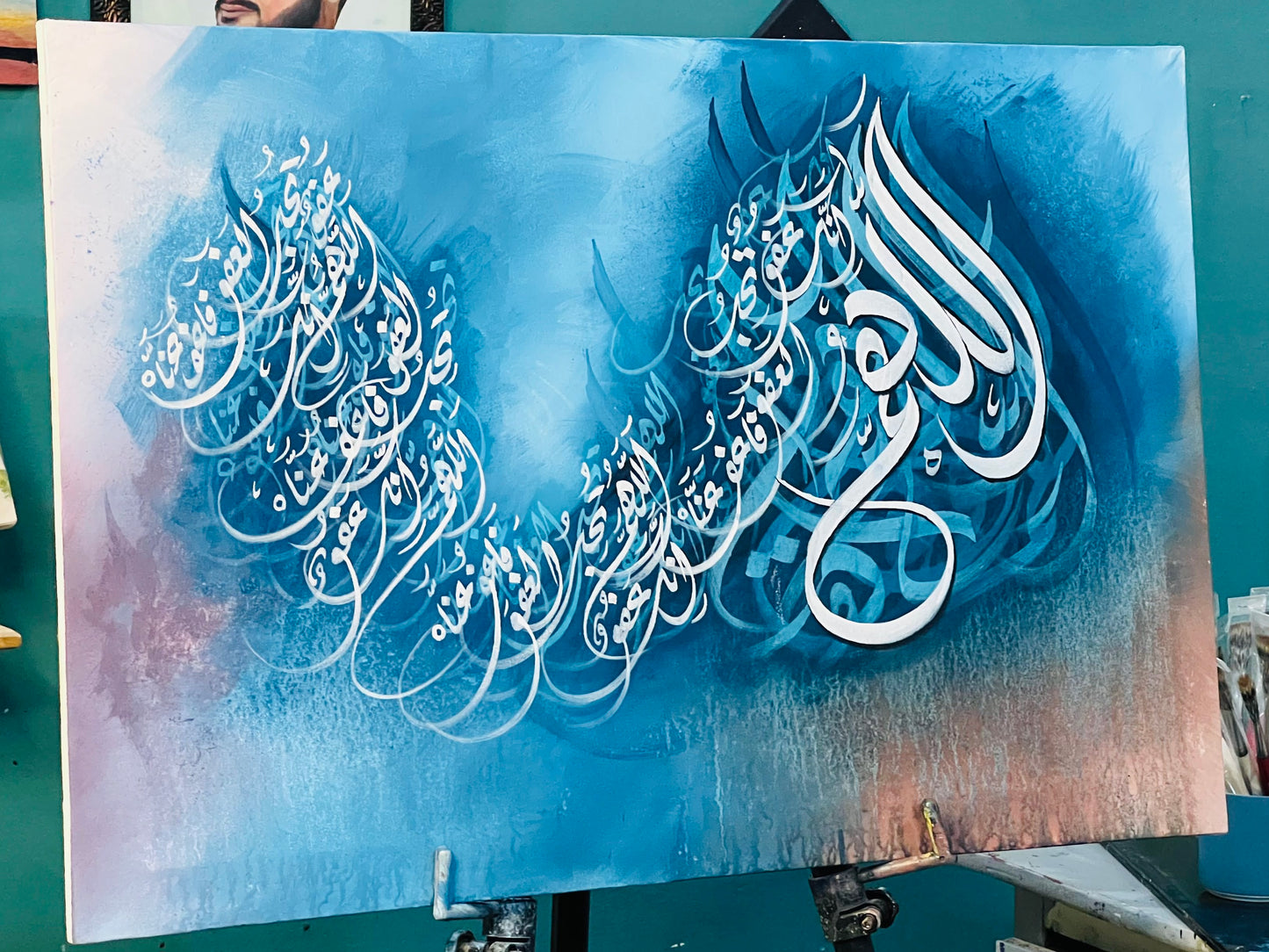M Yasir Azeemi
"Allahumma innaka tuhibbul afwa fa'fu anni" DUA Written in modern Calligrphy on Canvas
"Allahumma innaka tuhibbul afwa fa'fu anni" DUA Written in modern Calligrphy on Canvas
Couldn't load pickup availability
اللَّهُمَّ إِنَّكَ عَفُوٌّ تُحِبُّ الْعَفْوَ فَاعْفُ عَنِّي
(O Allah, indeed You are Pardoning, You love pardon, so pardon me.)
Set against a calming blue-toned background, the composition reflects serenity, peace, and divine mercy. The soothing shades of blue symbolize spiritual depth, tranquility, and the vastness of Allah’s forgiveness, while the sacred words shine as a beacon of hope and humility.
This painting is more than a visual piece—it is a reminder of Allah’s boundless mercy and love for pardon, especially recited during the blessed nights of Ramadan and Laylat al-Qadr. Crafted in a modern calligraphic style, it merges spiritual devotion with contemporary art, making it a timeless addition to any space.
Importance of DUA:
-
Taught by the Prophet ﷺ – When Sayyida A’ishah (RA) asked what she should recite if she found Laylat al-Qadr, the Prophet ﷺ specifically taught her this dua (Hadith: Tirmidhi, Ibn Majah).
-
Focus on Allah’s Attribute of Al-‘Afuww – Unlike “Al-Ghafoor” (The Forgiving) or “Ar-Rahman” (The Merciful), Al-‘Afuww means The One who erases sins completely, leaving no trace behind. This dua is a direct plea for total erasure, not just forgiveness.
-
Short, simple, and comprehensive – It’s easy for anyone to memorize and recite, yet it carries immense spiritual depth and reward.
-
Best dua for Laylat al-Qadr – Since Laylat al-Qadr determines destinies, asking Allah for complete pardon is the most powerful way to begin anew without the burden of past sins.
-
Everyday relevance – Although recommended for Laylat al-Qadr, this dua can be recited anytime, as it reflects humility and a believer’s desire for Allah’s mercy and love.
Share












